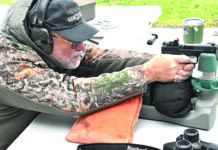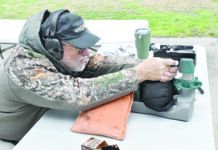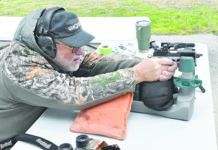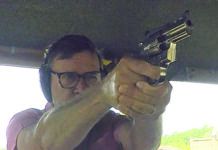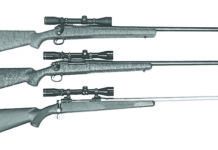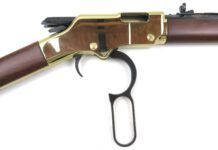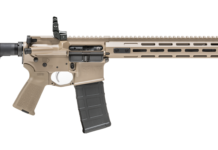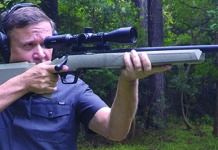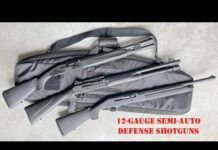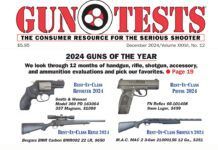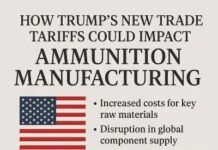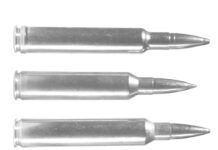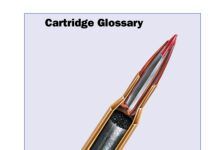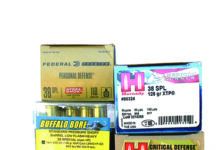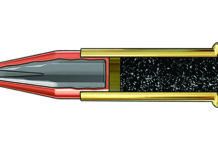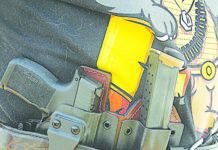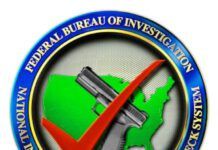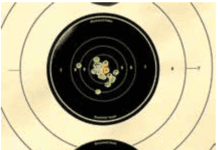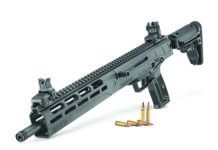After months of on again, off again negotiations, Karl Walther, GmBh and Interarms Inc. have struck a deal that allows the German manufacturer to regain U.S. rights to its name.
Interarms obtained the American rights to the Walther trademark in the mid-1960s in a deal negotiated by Sam Cummings, the firm’s late founder. The deal was to have run until 2013.
Under the agreement announced last week, Interarms will sell the Walther name and product inventories to an entity that will be called Walther USA. The new company will be the exclusive agent for Walther handguns and airguns in the United States.
Officials said Walther USA is obtaining the necessary American licenses but should be up and running by the end of January, just in time for the 1999 SHOT Show in Atlanta. The deal should close officially at that time, when funds will be released from escrow. The amount of money Walther is paying for the deal was not disclosed.
Interarms will manage the Walther USA operation at the outset and says that it will seek growth opportunities for the new company through acquisitions or strategic alliances. As the new company grows and becomes more fixed in the United States, Interarms employees will be moved to Walther USA.
The lone outside product that remains in Interarms’ stable is the Japanese-made Howa rifle line. Most of the firm’s Rossi inventory has been sold to a Southeastern distributor, while another wholesaler recently bought a major quantity of magazines, leaving Interarms’ stocks at fairly low levels. Market sources said most of the remaining inventory is expensive and would be difficult to sell.
The new Walther USA entity is expected to compete in the 9mm pistol market with its P99, a gun that should get quite a bit of attention as Walther develops a U.S. presence. The company will also concentrate heavily on air guns, including a new C02-powered copy of the Beretta 92. The Walther PPK series of .380 and .22 caliber pistols will continue to be manufactured in Birmingham, Alabama under a Walther licensing agreement.
Feds Brace For NICS Complaints
Federal and state officials are bracing for a tide of complaints when they begin a national system of instant background checks, which is called the National Instant Check System (NICS), for all gun buyers November 30 — just in time for the crush of holiday purchases.
“We need to work together to minimize the complaints,” Attorney General Janet Reno said, “to make it as easy as possible for law-abiding people to have weapons.”
“Although it’s not been easy, we are on schedule,” Reno said, adding that the system will be operating nationwide on the date set by the Brady Act, which established federal background checks for handgun purchasers almost five years ago.
The new instant system, operated by the FBI and state governments, will encounter two crushing burdens from the day it replaces the checks on handgun buyers, which have been made since February 1994 by state and local police and sheriffs.
The new law will double the number of checks because it requires background approvals not just for handgun buyers but also for those purchasing rifles and shotguns. Deputy Assistant FBI Director David Loesch estimated 12.4 million firearms of all kinds are sold each year in the United States. All will be covered now, plus another 2.5 million annual transactions when an owner retrieves a firearm from a pawn shop.
December is the busiest month of the year for gun sales, because hunting seasons coincide with Christmas buying.
“It’s difficult to bring up a system in the biggest month of the year, obviously,” Loesch said. “Of course we’re worried about it, sure. I mean, we’d be crazy if we weren’t. But we’ll definitely be prepared.”
Under the new system, 27 states have decided to do some or all of the checks themselves. The FBI will do the checks for the rest. In the FBI system, a gun dealer will telephone one of two toll-free numbers and supply the buyer’s name, sex, race, date of birth and state of residence. If no record is found in a computer check, approval for the sale will be given to the dealer within three minutes, Loesch said. He predicted this outcome 80 percent to 85 percent of the time.
If a record is found, the call will be transferred automatically from the telephone centers run by a contractor to FBI examiners, who will check the actual computer record. They will advise the dealer to deny the sale or delay it for further checking.
The FBI and local lawmen will have up to three days to check further — to see, for instance, if an arrest led to a conviction or acquittal if the disposition of the case is not on the computer. The current system allows up to five days for that check.
The FBI has hired and almost finished training 513 people in West Virginia to handle its share of the work, set up two telephone centers through the contractor, Teletech, and sent teams to brief the nation’s 106,000 gun dealers and pawnshop owners.


